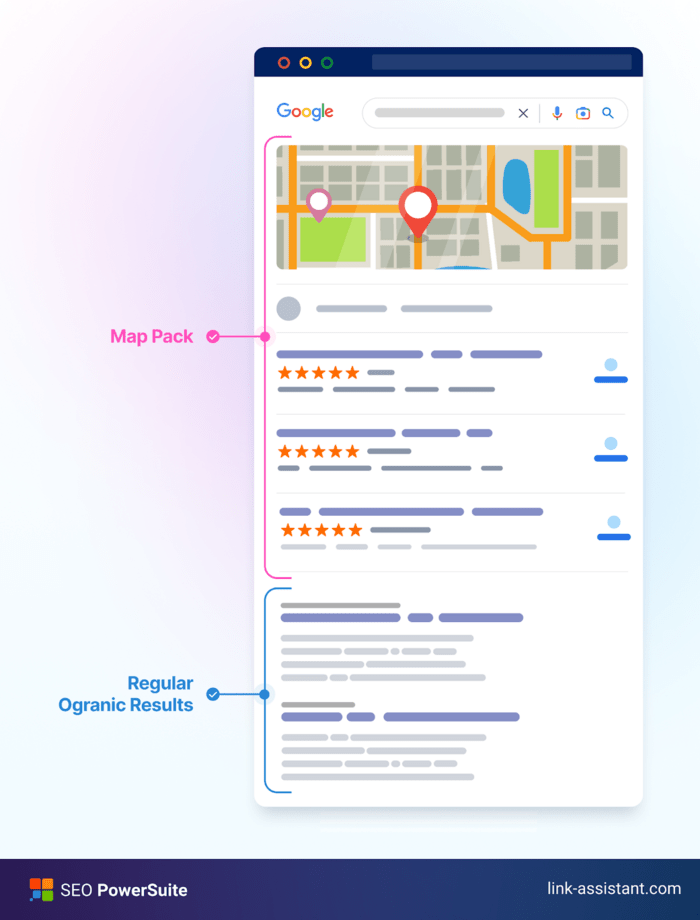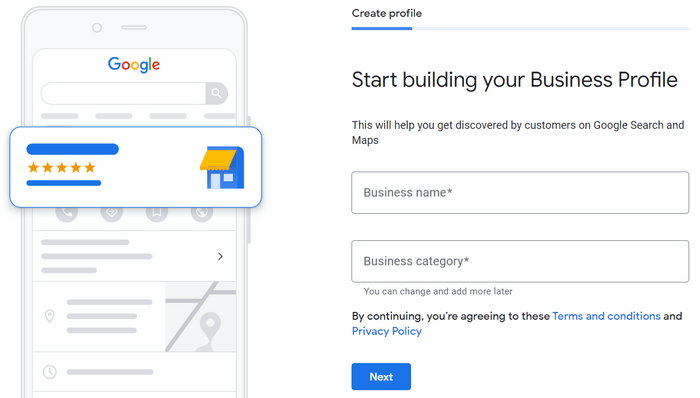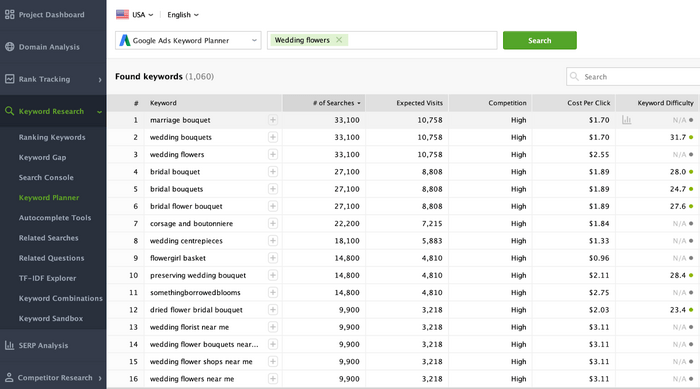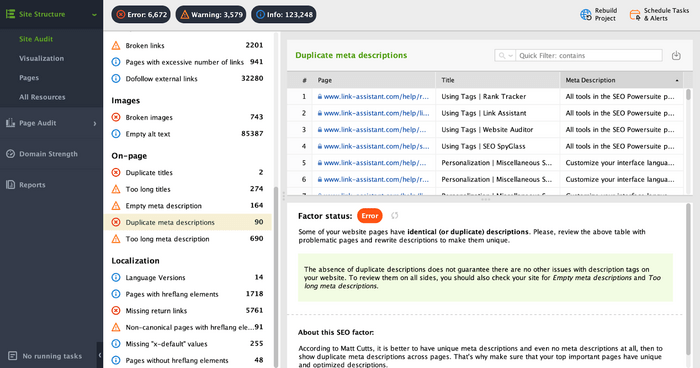The Complete Guide to Construction SEO

Contents
In today's digital landscape, having a strong online presence is crucial for construction businesses looking to attract more leads and win more projects. Search Engine Optimization (SEO) is the key to ensuring your construction company ranks higher on Google, making it easier for potential clients to find you.
SEO helps your website appear in search results when people look for construction-related services, whether they are searching for "home renovation contractors" or "best commercial construction firms near me." But SEO does more than just put your name on the map—it drives qualified traffic to your site, generates consistent leads, and positions your brand as a trusted authority in your niche.
With the right strategy, SEO can turn your website from a digital brochure into a lead-generating machine.
1. Understanding local SEO for construction businesses
Most construction companies operate locally, so focusing on local SEO is essential. When people search for construction services, Google often displays a "local pack" (a map with top business listings) along with organic search results. To rank well in both, you need to optimize your website and Google Business Profile.
Steps to Improve Local SEO:
a) Set up & optimize your Google Business Profile
Google Business Profile is a free tool that helps businesses manage their online presence on Google Search and Maps. By optimizing your profile, you increase your chances of appearing in local search results. Ensure your business information is accurate, upload high-quality images, and encourage customers to leave reviews. Responding to reviews can also enhance trust and credibility.
b) Optimize for local keywords
Using location-based keywords in your website content helps potential clients find you when searching for services in specific areas. Instead of targeting broad keywords like "construction company," focus on geo-specific keywords such as:
- "Custom home builder in Dallas"
- "Roofing contractors in Los Angeles"
- "Commercial construction company in Miami"
These keywords should be strategically placed in titles, meta descriptions, headings, and blog content to maximize visibility.
c) Build citations & local backlinks
Citations are online mentions of your business name, address, and phone number (NAP) on local directories and websites. Ensuring consistency across platforms like Yelp, Angi, HomeAdvisor, and BBB helps establish credibility with search engines. Additionally, obtaining backlinks from local suppliers, industry blogs, and chamber of commerce websites can significantly boost your local search rankings.
d) Create location-specific landing pages
If your construction business operates in multiple cities or regions, creating dedicated landing pages for each location can greatly improve your visibility in local searches. Each page should include unique content that highlights your services in that area, showcases local projects, and incorporates geo-targeted keywords. Avoid duplicating content—Google favors relevance and originality.
Example:
- /construction-services-los-angeles
- /general-contractor-austin
These pages also serve as great entry points for paid ads or local promotions.
e) Use structured data (Schema Markup) for local SEO
Adding local business schema markup to your website helps search engines better understand your business and can enhance your listings with rich snippets—such as star ratings, business hours, and service area. This technical SEO step can improve click-through rates and increase your chances of appearing in the local pack.
You can use tools like Google’s Structured Data Markup Helper or plugins (for WordPress users) to implement this easily.
f) Leverage customer reviews & testimonials strategically
While you already mention getting reviews on your Google Business Profile, it’s also powerful to integrate reviews directly on your website, especially on location pages or service pages. Adding authentic testimonials with the client’s name and location can increase local trust and enhance keyword relevance.
Pro tip: Use a reviews widget or embed snippets from Google/Yelp to keep content fresh and dynamically updated.
g) Keep NAP consistency across the web
Even slight variations in your business name, address, or phone number across directories can confuse search engines and hurt your rankings. Use tools like Moz Local, BrightLocal, or Whitespark to audit your NAP listings and fix inconsistencies.
h) Get involved in local community & media
Participating in local charity events, sponsorships, or community initiatives gives you legitimate reasons to get mentioned (and linked) by local news sites and blogs. These hyper-local backlinks can be incredibly valuable for SEO while also reinforcing your reputation in the community.
2. Keyword research for construction SEO
Keyword research is the foundation of any effective SEO strategy. For construction businesses, targeting the right search terms means reaching potential clients at the exact moment they're looking for your services. Whether they need a contractor, have a renovation question, or are comparing estimates, your website should be visible when they search.
How to find the best keywords
Start by using keyword research tools like Google Keyword Planner, Rank Tracker, or RankDots to uncover what your ideal clients are searching for.
If you’re using Rank Tracker, you can create a project for your website, switch to the Keyword Research module and look for key phrases using such tools as Ranking Keywords, Keyword Gap, Autocomplete Tools, etc.
But don’t just chase high-volume keywords—focus on search intent. Are users looking to hire, research, compare, or DIY? The goal is to target a blend of keyword types that align with all stages of the buyer journey.
Smart keyword types to include:
a) Service-based keywords (transactional intent):
These are the bread and butter of local construction SEO—terms people use when they’re ready to hire.
- “General contractor services”
- “Kitchen remodeling near me”
- “Concrete foundation repair in Austin”
b) Question-based keywords (informational intent):
Capture traffic earlier in the customer journey by answering common questions.
- “How much does a bathroom remodel cost?”
- “What’s the best time of year to build a deck?”
- “Do I need permits for a home addition?”
c) Location + niche combinations:
Combine your services with hyper-local phrases to dominate local search.
- “Energy-efficient home builder in Denver”
- “Luxury basement renovation Toronto”
- “ADU construction permits San Diego”
d) Long-tail keywords (high intent, low competition):
These may have lower search volume but higher conversion rates.
- “Best tile for walk-in showers in cold climates”
- “Affordable driveway resurfacing for duplex homes”
Pro tips
1. Analyze competitor keywords:
Look at the top-ranking construction companies in your area and plug their websites into tools like Ahrefs or Ubersuggest to see which keywords they rank for. This can reveal gaps in your own strategy or ideas for new content.
2. Don’t ignore seasonal trends:
Construction services often fluctuate by season (e.g., roofing in spring, insulation in winter). Use Google Trends to uncover seasonal keywords and plan content ahead of time.
3. Use keywords in conversion elements too:
Incorporate target keywords into call-to-action buttons, quote request forms, and service descriptions—not just blog posts. This improves both user experience and on-page SEO.
4. Keep your keyword list organized by intent & funnel stage:
Group keywords by service, intent (informational vs. transactional), and funnel stage (awareness, consideration, decision). This helps when planning content that addresses clients at every stage—from researching to hiring.
3. Creating high-quality content for SEO
Content plays a crucial role in SEO by providing valuable information to users while also improving your site's authority. A well-structured content strategy can help answer potential clients' questions and showcase your expertise in the industry.
Types of content to create:
- Service pages: Create dedicated landing pages for each service you offer, such as "Bathroom Remodeling" or "Commercial Roofing." These pages should be optimized with relevant keywords and compelling call-to-actions.
- Blog posts: Writing educational blog posts on topics like "How to choose a reliable contractor" or "Best eco-friendly building materials" can attract organic traffic and establish authority.
- Case studies & portfolio: Showcasing past projects with high-quality images and client testimonials helps build trust with potential customers.
- FAQ pages: Address common questions about your services, pricing, and timelines to improve user experience and increase engagement.
Best practices for SEO content:
- Write informative, engaging, and easy-to-read content.
- Use bullet points and headings to improve readability.
- Include relevant internal links to direct users to other useful pages on your site.
- Add images, infographics, and videos to enhance engagement.
- Optimize for featured snippets by providing direct answers to commonly searched questions.
4. Link building for construction websites
Backlinks—links from other websites pointing to yours—remain one of the most powerful ranking signals in SEO. For construction businesses, backlinks not only help you climb higher in search results but also boost credibility and drive referral traffic. However, not all backlinks are equal. The key is to earn high-quality, relevant, and local links that reinforce your authority in the construction space.
Why backlinks matter for construction SEO
- Authority: A strong backlink profile tells Google that other reputable sources trust your content.
- Local relevance: Links from local businesses, chambers of commerce, and news sites enhance your visibility in geographic-specific searches.
- Referral traffic: Quality links from relevant sites can drive targeted traffic that’s more likely to convert.
How to earn high-quality backlinks
1. Guest posting on industry blogs
Reach out to construction, architecture, remodeling, or home improvement blogs and offer to contribute expert articles. Topics could include:
- “Trends in Sustainable Building Materials”
- “Tips for First-Time Home Renovation Projects”
- “Common Mistakes in Commercial Build-Outs”
Tip
2. Partner with local businesses
Collaborate with:
- Material suppliers
- Interior designers
- Realtors
- Subcontractors
Offer to cross-promote each other's services or co-author blog content. Even something as simple as a “trusted partners” page with backlinks can benefit both sides.
3. Create link-worthy content (passive link building)
Instead of always asking for links, attract them naturally by creating resources others want to reference:
- Cost calculators (e.g., home renovation cost estimator)
- Guides (e.g., “Permits You Need for Home Construction in [City]”)
- Infographics (e.g., “Steps in the Custom Home Building Process”)
- Local data roundups (e.g., “Top 10 Home Renovation Trends in [City]”)
These assets can be shared by bloggers, journalists, or local community groups.
4. Press releases & media coverage
Launch a new service, break ground on a major project, or win an award? Write a professional press release and submit it to:
- Local news outlets
- Construction trade magazines
- Online PR distribution platforms (e.g., EIN Presswire, PRWeb)
These can result in high-authority backlinks and press mentions that build trust.
5. Directory & citation building
Beyond just SEO benefits, listing your business on reputable directories improves your online footprint. Focus on:
- Houzz
- HomeAdvisor
- Angi
- Yelp
- BBB
- Local chamber of commerce sites
- Industry associations (e.g., NAHB, NARI)
Make sure your NAP (Name, Address, Phone) is consistent across all listings to avoid confusing search engines.
6. Sponsor local events or organizations
Sponsoring a charity run, high school team, or trade show can earn you a backlink from their website—often with high domain authority and strong local relevance. Look for:
- Local schools or nonprofits
- Habitat for Humanity builds
- Home & Garden shows
- Construction job fairs
Ask for a sponsor shout-out with a link on their website or social media.
Link building takes time and consistency, but the payoff is worth it. By focusing on quality over quantity and building relationships within your local and industry communities, you’ll create a backlink profile that strengthens your search rankings and drives meaningful traffic.
5. Technical SEO: ensuring your site is search-friendly
Technical SEO ensures that your website is properly structured for search engines to crawl and index. Without it, even well-optimized content may not rank well.
Key technical SEO elements:
- Mobile-friendliness: Since most users browse on mobile devices, ensure your website is fully responsive.
- Site speed: Optimize loading times using Google PageSpeed Insights to enhance user experience and reduce bounce rates.
- Secure website: Enable HTTPS (SSL certificate) to provide a secure browsing experience.
- Fix broken links & errors: Use tools like Screaming Frog to identify and fix broken links and 404 errors.
- XML sitemap: Submit your sitemap to Google Search Console to help search engines discover your pages.
- Schema markup: Implement structured data to enhance search result listings with rich snippets, such as star ratings and service details.
Manually checking hundreds—or even thousands—of pages for technical issues can be time-consuming and overwhelming. That’s where a tool like Website Auditor comes in handy. With just a few clicks, it scans your entire site and compiles a detailed report of all detected issues, along with the specific URLs where each problem occurs.
You can easily export the report and share it with your web developer, making it faster and more efficient to identify and fix SEO-related problems across your site.
6. Measuring and improving your SEO performance
SEO is an ongoing process that requires constant monitoring and adjustments to maintain rankings and improve results.
Tools to use:
- Google Analytics – Track traffic, user behavior, and conversions.
- Google Search Console – Monitor search rankings and fix indexing issues.
- SEO PowerSuite – Analyze backlinks and keyword rankings.
- BrightLocal – Track local SEO performance and manage citations.
Key metrics to monitor:
- Organic traffic: Measure how many visitors come from search engines.
- Keyword rankings: Track progress of your target keywords.
- Bounce rate: Analyze whether visitors stay or leave quickly.
- Conversion rate: Monitor how many visitors turn into leads or clients.
- Backlinks: Keep track of the quantity and quality of backlinks earned.
Conclusion
SEO is one of the most powerful marketing tools for construction businesses. By focusing on local SEO, keyword research, content creation, link building, and technical SEO, you can significantly improve your rankings, attract more clients, and grow your business.
Start implementing these strategies today and watch your construction company dominate Google search results!







